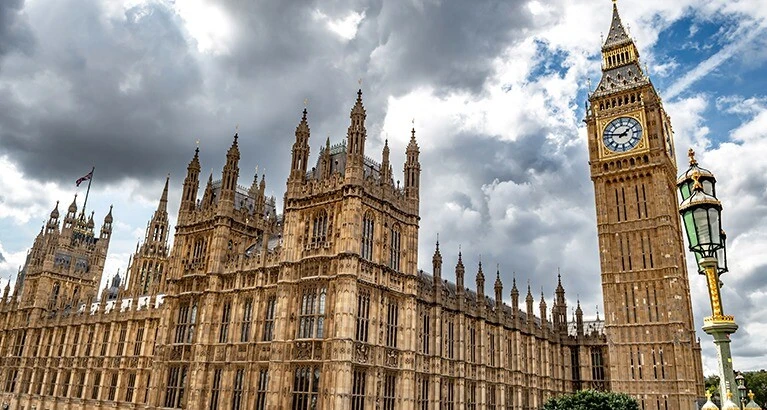Published in 1976, the book ‘Place and Placelessness’ by Canadian geographer Edward Relph is considered a classic in examining geographic origin and the emotional significance of where a person is born and raised. One’s hometown, he wrote, is “the central point of human experience”.
This is widely reflected in popular culture, particularly music, including songs such as Small Town by John Mellencamp (reflecting on his Indiana birthplace), Home Town by Joe Jackson (recalling the “distant sound of waves and seagulls” in the coastal UK city of Portsmouth), and My Hometown by Bruce Springsteen (on the declining fortunes of Freehold, New Jersey), the closing track on his 1984 album Born in the U.S.A.
And while Springsteen famously sang that he was Born to Run from his stifling hometown (“Oh, baby this town rips the bones from your back, it’s a death trap, it’s a suicide rap”), Professor Raghu Rau of Cambridge Judge Business School finds that for a chief executive officer (CEO) their hometown has a more beneficial effect. In a study entitled ‘Born to Behave’, Raghu finds that CEOs who head companies near their hometowns are less likely to commit financial misconduct compared to other CEOs.
CEOs who work close to home less likely to engage in misconduct
“The CEOs we term home CEOs – who manage companies whose headquarters are within 100 miles of their birthplaces – exhibit significantly lower misconduct levels,” says Raghu, Sir Evelyn de Rothschild Professor of Finance at Cambridge Judge. “We found significantly lower levels of misconduct for home CEOs based on 4 types of misconduct – accrual-based earnings management, accounting fraud, opportunistic insider trading, and financial offenses. This effect is amplified in regions with strong local investor presence and higher religiosity (religious belief or attachments), and for CEOs with longer tenures in their home state.
“We also found the same patterns apply to CFOs (chief financial officers), who may in fact be more involved than CEOs in reporting decisions because they directly oversee financial statements,” he says.
The study, published in the Review of Accounting Studies journal, is co-authored by Zicheng Lei of King’s Business School, King’s College London, Dimitris Petmezas of Durham University Business School, Raghavendra Rau of Cambridge Judge Business School, and Chen Yang of Adam Smith Business School, University of Glasgow.
“These findings about home CEOs suggest that geographic and cultural factors could be a fruitful avenue for future work on preventing misconduct,” says Raghu. “As we highlight in our research, there are significant knowledge gaps when it comes to corporate misconduct, and hopefully some of these other gaps will be addressed in future research.”
Misconduct has long been shown to be a major factor affecting investor confidence and decision-making, including their general willingness to invest in financial markets and their likelihood to invest in specific firms. Yet while there have been many studies on how misconduct affects investor behaviour, the issue of how personal traits influence a company’s likelihood of committing financial misconduct have largely been unexplored.
These findings about home CEOs suggest that geographic and cultural factors could be a fruitful avenue for future work on preventing misconduct,
How a hometown influences a CEOs norms and values
The authors focus on a CEO’s hometown because the research of Edward Relph and others show how people make strong connections with their local communities, and this is a key factor in social legitimacy because such legitimacy is based on shared norms and values.
As defined in a 1995 study cited by Raghu, legitimacy “is a generalised perception or assumption that the actions of an entity are desirable, proper, or appropriate within some socially constructed system of norms, values, beliefs, and definitions”. That earlier study says legitimacy is generalised in that it reflects an ‘umbrella evaluation’ that, while it can be resilient to particular events, is dependent on a broader history of events.
As the new study’s authors say: “Local communities often scrutinise homegrown CEOs closely, having more information about them and a stronger interest in their companies due to personal connections”. Such heightened attention “motivates CEOs to behave in ways that meet their hometown’s expectations, including avoiding financial misconduct”.
In addition, increased local monitoring of homegrown CEOs may raise the detection rate of misconduct. The basic rules of criminology dictate that the behaviour of executives should adjust positively as the expected cost of misconduct increases
Local CEOs’ ethical conduct unaffected by firm size or board
The research also examines whether the findings may be affected by stronger corporate governance at firms with home CEOs. But after looking at 3 different potential factors – board size, percentage of independent directors and E-index (which measures board entrenchment provisions such as staggered boards, poison pills and supermajority requirements for bylaw changes) – the authors find that local CEOs are still associated with lower rates of misconduct.
The research finds, further, that the lower financial misconduct for local CEOs is not related to CEO compensation structures. The results are also unaffected when adjusting for CEOs’ political leanings, a tendency toward overconfidence, religious influences, adjustment to lobbying, and other county data such as population, income and education.
To explore how social connections of local CEOs affect misconduct levels, the research identifies counties with a stronger local investor base and greater religiosity, and CEOs with longer work histories in their hometowns – and all these factors resulted in a lower incidence of financial misconduct.
The study is based on firms covered by database ExecuComp from 1992-2018, excluding financial firms and utilities because they are heavily regulated. The measure of home CEOs is based on manual collection of birthplaces from various sources, including Marquis Who’s Who and Standard and Poor’s Register of Directors and Executives. The study’s final sample includes 1,595 CEOs in 1,268 firms.
Assessing financial misconduct
To assess financial misconduct, the research uses 4 measurements.
1
Earnings manipulation
For earnings manipulation, the absolute value of discretionary accruals (management-directed accounting adjustments). “Accruals are vulnerable to managerial manipulation because they require managers’ estimation and judgment,” the research says. “Higher values of discretionary accruals imply that the firm is more likely to manipulate earnings via accruals.”
2
Accounting fraud
For accounting fraud, the number of class action lawsuits and earnings misstatements. “We limit this data to income-increasing misstatements, which are more likely to be intentional.”
3
Opportunistic insider trading
For opportunistic insider trading, a price pattern ratio based on an influential 2008 study to detect such trading that is more likely to be based on private information. “Specifically, we construct a price pattern ratio, which is calculated as the market-adjusted gross return over 20 trading days after the insider transaction to the market-adjusted gross return over the 20 trading days before the transaction.”
4
Financial offenses
For financial offenses, the Violation Tracker database produced by the Corporate Research Project of Good Jobs First. The database has collected more than 614,000 civil and criminal cases since 2000, linking 130,000 of those to 3,361 parent companies representing about 95% of total penalty value.
A longstanding interest in CEO origins and personal experiences
Raghu has long been interested in how a CEO’s birthplace and other life experiences influence their later business decisions.
In 2016, he co-authored a study that found a relation between a CEO’s experience of fatal disasters in childhood with risk-taking later in life. “CEOs who experience fatal disasters without extremely negative consequences lead firms that behave more aggressively, whereas CEOs who witness the extreme downside of disasters behave more conservatively,” the study says. “These patterns manifest across various corporate policies including leverage, cash holdings, and acquisition activity.
“Ultimately, the link between CEOs’ disaster experience and corporate policies has real economic consequences on firm riskiness and cost of capital,” that research concludes.
That study won the tongue-in-cheek Ig Nobel Prize awarded by the magazine Annals of Improbable Research, which honours achievements that “first make people laugh then make them think”.
In 2020, Raghu examined the connection between executive compensation and CEOs employed at firms located near terrorist attacks, finding that such CEOs can earn an average pay increase of 12% after the attack relative to CEOs at firms located far from attacks. There has been relatively little research on how non-monetary factors affect executive compensation, with mixed results, so the research by Raghu focused on “a specific nonmonetary factor, a terrorist attack, on compensation” in order to clearly isolate such a factor.
“A terrorist attack is a clean, sharp, and specific event that forms an unexpected unambiguous deterioration in the quality of the CEO’s living environment. Hence, if CEOs do indeed react to non-monetary factors in total compensation, we should see an increase in their pay following terrorist attacks,” the study said.
And in 2023, Raghu even went back before birth. In a study entitled ‘Tainted Beginnings, Risky Endings’, he found that CEOs exposed before birth to the most hazardous waste sites in the US take more risks and that such risks lead to firm underperformance and a higher likelihood of CEO turnover.
“Previous literature has explored how CEOs’ early-life experiences shape corporate policies, but these studies typically face selection bias issues,” the research says. “Our study addresses this gap by examining an exogenous factor – pollution – that likely affects CEO risk preferences without being influenced by parental or CEO choices.”
Says Raghu: “My interest in the early influencers of CEOs relates to my belief that the actions of executives do reflect their ‘previous lives’, so to speak, before they even entered the business world,” says Raghu. “It’s the old discussion about nature versus nurture, and it’s clear to me that both apply when it comes to how CEOs approach issues like risk, which are essential to manage if a company is to be successful.”
Research gaps in understanding financial misconduct
Going far beyond birthplaces and other nature-nurture issues, the scholarly gaps in understanding financial misconduct was explored in a multidisciplinary review in 2018 published in the Review of Accounting Studies, cited in the research by Raghu and his colleagues.
The paper looks at various aspects of this issue, including perspectives relating to the law, accounting (referencing the Enron and WorldCom scandals in the early 2000s) and finance.
“While we focused on how a CEO’s hometown affects financial misconduct, there are still quite a few relatively unexplored gaps in our understanding of this issue,” says Raghu. “These include the role of personal reputation as tied to local social capital, the interaction between individual and institutional factors in driving misconduct, how technological changes like remote work affect oversight and misconduct potential, and the role of corporate culture and its transmission through an organisation.”
The 2018 study by academics at 5 US business schools identifies 4 main challenges in understanding financial misconduct:
1
Definitional problems
A “variety of definitional problems” in identifying financial reporting misconduct – including terminology that includes fraud, misconduct, irregularities, misreporting and misrepresentation “to describe similar events” of financial reporting misconduct.
2
Lack of clarity
A lack of clarity as to how many firms engaging in misconduct are never caught, and thus what the characteristics of those firms are. “This problem of partial observability –which is either ignored or acknowledged as a caveat but rarely addressed – severely limits the interpretation of some of the prior results found in the literature.”
3
Misconduct connected factors
The fact that misconduct is connected to other factors, including a firm’s financial condition, and this “impedes the disentanglement of cause and effect”.
4
Variable data
Differing results from different databases of financial misconduct, with each typically capturing a different subset of information about an instance of misconduct. “A firm’s financial reporting misconduct usually is revealed to the public via a complex sequence of announcements that typically spread over multiple years, and a given database may only capture one of these many announcements.”
That multidisciplinary study concludes:
“While there is strong evidence showing that financial reporting misconduct is associated with an array of negative consequences, there is mixed evidence on what causes this misconduct. There is also conflicting evidence on whether internal monitoring and governance limit financial misconduct behaviour.
“In terms of personal deterrents, the evidence in the literature suggests that executives who engage in financial reporting misconduct are severely punished yet the costs for directors are smaller and less clear. Given the punishments and negative consequences consequent to financial reporting misconduct, it is a puzzle as to why it exists and persists.
“We review several advances toward better understanding this puzzle, notably recent evidence on the relations between personal traits of executives, social norms, and financial reporting misconduct.
“With those challenges in mind, the literature on misconduct offers significant opportunities for future research, as many questions remain open.”
Featured research
Lei, Z., Petmezas, D., Rau, P.R. and Yang, C. (2025) “Born to behave: home CEOs and financial misconduct.” Review of Accounting Studies (DOI: 10.1007/s11142-025-09870-y) (published online Feb 2025) (available online via the SSRN)
Bernile, G., Bhagwat, V. and Rau, P.R. (2017) “What doesn’t kill you will only make you more risk-loving: early-life disasters and CEO behavior.” Journal of Finance, 72(1): 167–206 (DOI: 10.1111/jofi.12432) (available online via the SSRN)
Rau, P. R., Wu, Y., and Ieong, L. S. (2023) “Tainted beginnings, risky endings: The effect of inadvertent prenatal pollution exposure on CEO risk-taking.” SSRN
Dai, Y., Rau, P.R., Stouraitis, A. and Tan, W. (2020) “An ill wind? Terrorist attacks and CEO compensation.” Journal of Financial Economics, 135(2): 379-398 (DOI: 10.1016/j.jfineco.2019.06.005) (available online via the SSRN)





